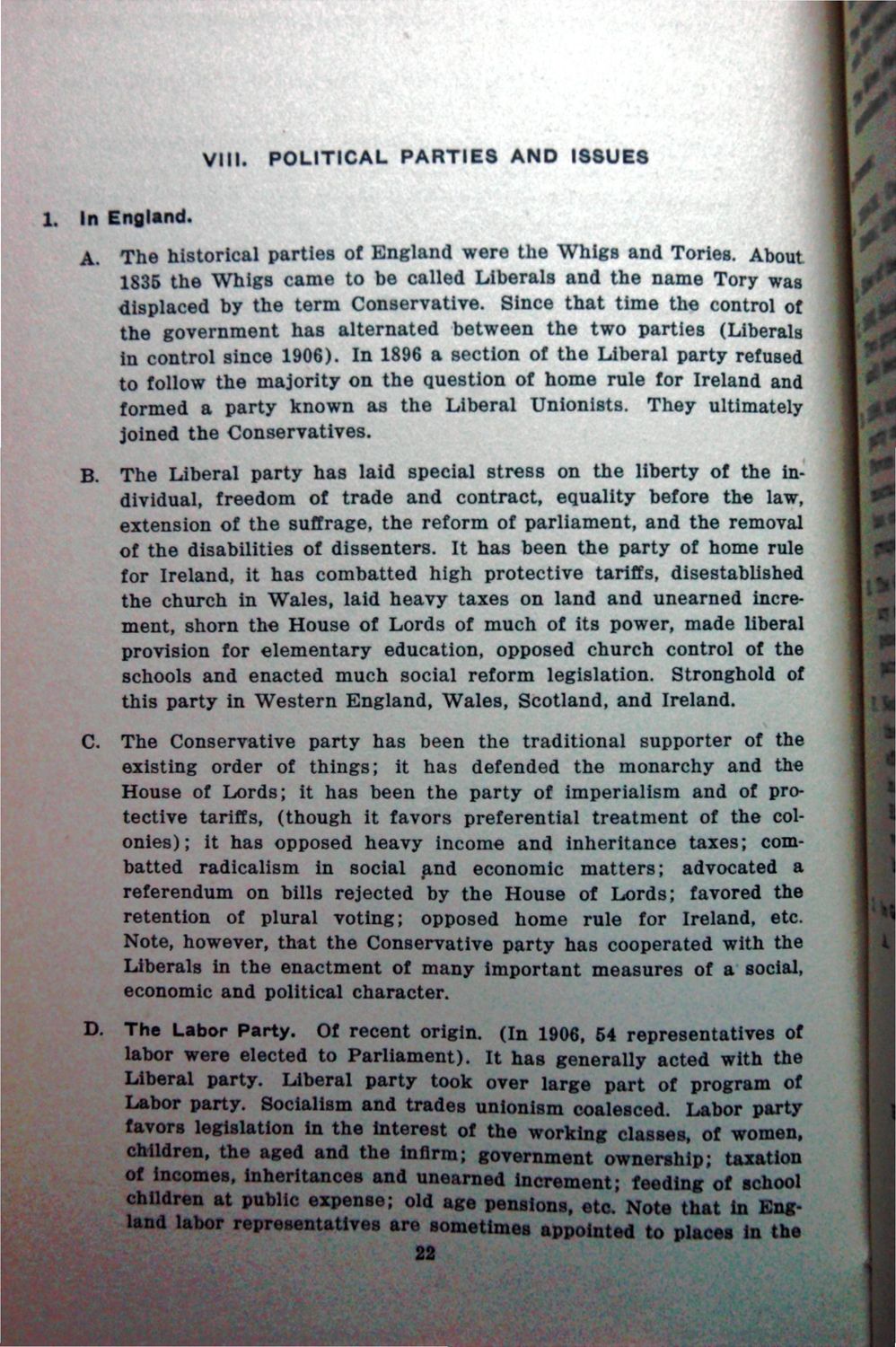| |
| |
Caption: War Publications - WWI Compilation 1923 - Article 48
This is a reduced-resolution page image for fast online browsing.

EXTRACTED TEXT FROM PAGE:
VIII. In England. POLITICAL PARTIES AND ISSUES A. The historical parties of England were the Whigs and Tories. About 1835 the Whigs came to be called Liberals and the name Tory was displaced by the term Conservative. Since that time the control of the government has alternated between the two parties (Liberals in control since 1906). In 1896 a section of the Liberal party refused to follow the majority on the question of home rule for Ireland and formed a party known as the Liberal Unionists. They ultimately joined the Conservatives. B. The Liberal party has laid special stress on the liberty of the individual, freedom of trade and contract, equality before the law, extension of the suffrage, the reform of parliament, and the removal of the disabilities of dissenters. It has been the party of home rule for Ireland, it has combatted high protective tariffs, disestablished the church in Wales, laid heavy taxes on land and unearned increment, shorn the House of Lords of much of its power, made liberal provision for elementary education, opposed church control of the schools and enacted much social reform legislation. Stronghold of this party in Western England, Wales, Scotland, and Ireland. C. The Conservative party has been the traditional supporter of the existing order of things; it has defended the monarchy and the House of Lords; it has been the party of imperialism and of protective tariffs, (though it favors preferential treatment of the colonies); it has opposed heavy income and inheritance taxes; combatted radicalism in social find economic matters; advocated a referendum on bills rejected by the House of Lords; favored the retention of plural voting; opposed home rule for Ireland, etc. Note, however, that the Conservative party has cooperated with the Liberals in the enactment of many important measures of a social, economic and political character. D. The Labor Party. Of recent origin. (In 1906, 54 representatives of labor were elected to Parliament). It has generally acted with the Liberal party. Liberal party took over large part of program of Labor party. Socialism and trades unionism coalesced. Labor party favors legislation In the interest of the working classes, of women, children, the aged and the infirm; government ownership; taxation of incomes, inheritances and unearned increment; feeding of ichool children at public expense; old age pensions, etc. Note that In England labor representatives are sometimes appointed to places in the 22
| |